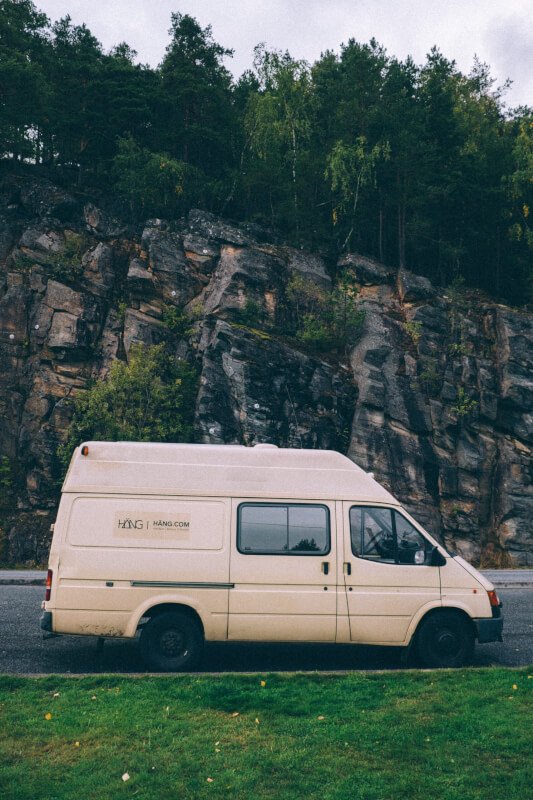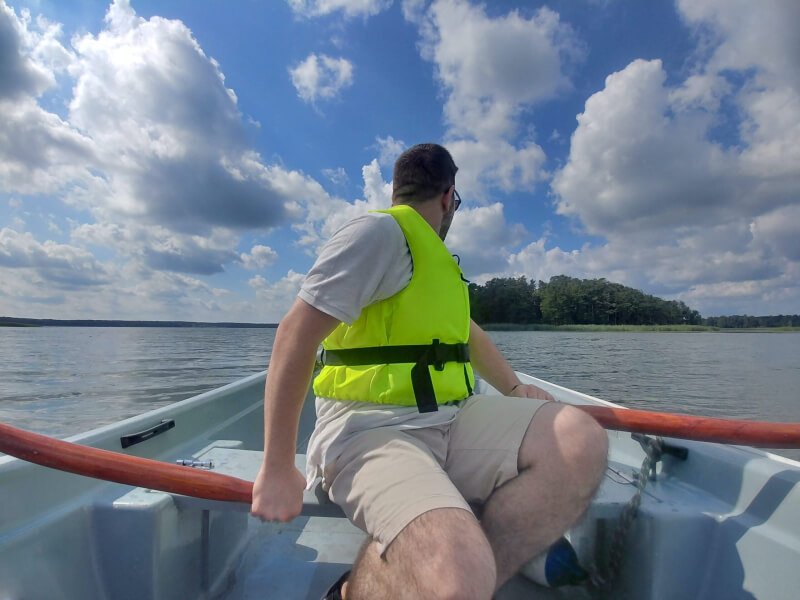Camping in the great outdoors can be an exhilarating adventure, filled with beautiful scenery and exciting activities. However, it’s important to be aware of the potential hazards and wildlife encounters that may arise during your trip. From venomous snakes slithering through the grass to curious bears rummaging through your food, the wildlife encounters while camping can both awe and intimidate. But fear not! In this article, we will explore some common potential hazards and wildlife encounters you may come across while camping and provide tips on how to navigate them safely. So, pack your gear and get ready to embark on a thrilling outdoor experience! Camping is a wonderful way to connect with nature and enjoy the great outdoors. However, it’s important to be aware of the potential hazards and wildlife encounters that can arise during your camping trip. By understanding these risks and taking appropriate precautions, you can ensure a safe and enjoyable outdoor adventure.

Weather Hazards
Extreme Temperatures
Extreme temperatures can be a serious hazard while camping. In hot weather, it’s crucial to stay hydrated and seek shade to prevent heat exhaustion or heatstroke. On the other hand, in cold weather, it’s important to dress in layers and have proper insulation to avoid hypothermia. Monitoring the weather forecast before your trip and packing accordingly can help you prepare for extreme temperatures.
Thunderstorms
Thunderstorms can pose a significant threat while camping due to lightning strikes, strong winds, and heavy rain. It’s essential to avoid open areas, tall trees, and bodies of water during a thunderstorm. Seek shelter in a sturdy structure or stay inside your vehicle until the storm passes. Also, remember to unplug all electrical devices in your campsite to avoid any potential damage.
High Winds
High winds can be dangerous, especially if you’re camping in an area with tall trees or near cliffs. Ensure your tent is properly anchored and consider using additional guy lines if needed. If the winds become too strong, it may be necessary to take down your tent temporarily and find a more sheltered area.
Floods
Camping near bodies of water, such as rivers or lakes, can put you at risk of flash floods. Always be aware of your surroundings and monitor weather conditions. If heavy rain is expected, it’s best to relocate to higher ground and away from potential flood zones. Avoid crossing flooded areas, as the water depth and current can be deceptive and lead to dangerous situations.
Terrain Hazards
Uneven Ground
Uneven ground can be a common hazard while camping, especially if you’re hiking or setting up your campsite in unfamiliar terrain. Watch your step and be cautious of rocks, tree roots, or holes that may cause you to trip or twist an ankle. Take your time to traverse the landscape carefully to prevent any unnecessary injuries.
Falling Hazards
When camping in areas with tall trees, falling branches or trees themselves can be a significant hazard. Avoid setting up your tent directly under large trees or dead branches. Also, be cautious when hiking or exploring, as loose rocks or unstable surfaces can cause you to slip and fall.
Rockslides
Camping near steep cliffs or rocky areas can increase the risk of rockslides. Keep an eye out for any signs of loose rocks or unstable terrain. Avoid camping directly beneath cliffs or areas prone to rockfalls. Stay on designated trails and use caution when climbing or traversing rocky terrain.
Steep Cliffs
Steep cliffs can present a serious danger, particularly during hikes or while exploring the surrounding areas. Stay well away from the edge of cliffs and exercise caution when navigating steep slopes. It’s essential to wear sturdy footwear and use trekking poles for added stability if needed.

Fire Hazards
Campfires
Campfires are a quintessential part of camping, but they can also be a hazard if not properly managed. Always follow fire regulations and guidelines set by the campsite or park authority. Clear the area around the fire pit of any flammable materials and keep a water source nearby to extinguish the fire completely before leaving the campsite or going to bed.
Wildfires
Wildfires can spread rapidly and pose a significant threat to campers and the surrounding environment. Before your trip, check if there are any fire restrictions or bans in place. Be mindful of the weather conditions, especially during dry periods, and avoid any activities that may cause sparks or ignite the vegetation. If you notice a wildfire nearby, follow instructions from park rangers or authorities and evacuate the area promptly.
Fireworks
While fireworks can be entertaining, they can also be dangerous when used in a camping setting. Many parks and campsites prohibit the use of fireworks due to the risk of fire and injuries. Respect these rules to ensure a safe camping experience for yourself and others.
Wildlife Hazards
Bears
Encountering a bear while camping can be both thrilling and potentially dangerous. It’s important to follow bear safety guidelines to prevent any negative interactions. Store food and scented items in bear-proof containers or hang them from a tree branch at least 10 feet off the ground and 4 feet away from the trunk. If you encounter a bear, remain calm, speak calmly and firmly, and back away slowly without turning your back.
Snakes
Snakes are a natural part of many camping areas and are generally more frightened of humans than we are of them. However, it’s essential to exercise caution and stay away from tall grass, rocks, or logs where snakes may be hiding. If you encounter a snake, give it plenty of space and allow it to move away on its own.
Scorpions
Depending on your camping location, scorpions may be present. Be cautious when reaching into crevices or rocks, as scorpions may hide there. Shake out your shoes and clothing before putting them on. If you get stung by a scorpion, seek medical attention immediately, especially if you experience severe pain or an allergic reaction.
Spiders
Spiders are commonly found in wooded areas and dark corners of tents or shelters. While most spiders are harmless, it’s essential to be mindful of them. Shake out your sleeping bag and check your footwear before putting them on, especially if you left them outside. Avoid touching spiders, and if you notice a spider bite, monitor it closely and seek medical attention if necessary.
Ticks
Ticks can carry diseases such as Lyme disease, so it’s crucial to take precautions to prevent tick bites. Wear long sleeves, long pants, and closed-toe shoes. Use insect repellent that contains DEET and perform regular tick checks while camping and after returning home. If you find a tick, promptly remove it using tweezers, grasping it as close to the skin as possible, and pulling upward with steady, even pressure.

Insect and Pest Hazards
Mosquitoes
Mosquitoes can be a nuisance while camping and can also transmit diseases such as West Nile virus or Zika virus. Protect yourself by wearing long sleeves, long pants, and using insect repellent that contains DEET. Additionally, consider using mosquito nets or screens for your tent or camping area to create a barrier between you and these pesky insects.
Bees and Wasps
Bees and wasps are attracted to sweet scents, including those from food and drinks. To prevent bee or wasp stings, keep food and drinks covered when not in use. If a bee or wasp is near you, remain calm and avoid swatting at it as this may provoke an attack. Slowly move away from the insect to give it a chance to fly away.
Ants
Ants are common pests that can invade your camping area and food supplies. Keep your campsite clean and free of food debris to discourage ants from approaching. Store food and garbage in sealed containers or bear-proof containers. If you notice ant trails or mounds, treat them with a commercial ant killer or create a barrier around your campsite using ant repellent products.
Rodents
Rodents, such as mice or squirrels, can find their way into your campsite in search of food. To prevent rodent encounters, store food in sealed containers or hang it from a tree branch. Keep your campsite clean and free of crumbs or food waste. If you do encounter rodents, avoid feeding them or leaving any food out that may attract them further.
Plant Hazards
Poison Ivy
Poison ivy is a plant commonly found in wooded areas and can cause an itchy and blistering rash upon contact. Learn to identify poison ivy by its three leaflets and avoid touching or brushing against it. If you do come into contact with poison ivy, wash the affected area with soap and water as soon as possible and apply calamine lotion or hydrocortisone cream to relieve itching.
Poison Oak
Similar to poison ivy, poison oak can cause an itchy rash upon contact. It is found in wooded areas and has three leaflets shaped like oak leaves. Take precautions to avoid contact with poison oak, and if exposed, follow the same steps as with poison ivy to minimize the effects of the rash.
Stinging Nettle
Stinging nettle is a plant covered in tiny hairs that can cause a stinging sensation when touched. Learn to identify stinging nettle and avoid contact if possible. If you accidentally come into contact with stinging nettle, wash the affected area with soap and water and apply a soothing cream or ice pack to alleviate the stinging sensation.
Water Hazards
Drowning
Water hazards, such as rivers or lakes, can present a drowning risk while camping, especially if you’re not a strong swimmer. Never swim alone, and always wear a life jacket when engaging in water activities. Pay attention to warning signs and be aware of river currents or changing water depths.
Fast-Flowing Rivers
Fast-flowing rivers can be deceptively strong and pose a significant danger to campers. Avoid swimming or wading in fast-flowing rivers unless you have experience and proper equipment. If you do decide to engage in water activities, always wear a life jacket and be aware of your limitations.
Waterborne Illnesses
Waterborne illnesses, such as giardia or cryptosporidium, can be contracted from contaminated water sources. It’s essential to treat all water obtained from natural sources, such as rivers or lakes, before drinking or using for cooking. Boiling the water or using water purification tablets can help minimize the risk of waterborne illnesses.
Human Hazards
Unfamiliar Surroundings
Camping in unfamiliar surroundings can present challenges and potential hazards. Take time to familiarize yourself with the area and the rules and regulations set by the campsite or park authority. Make note of emergency contact numbers and nearby medical facilities. Being prepared and informed will help mitigate any uncertainties and ensure a safer camping experience.
Theft
While camping, it’s important to secure your belongings and prevent theft. Avoid leaving valuable items unattended and consider using lockable storage containers or lockers if provided. Keep your campground well-lit at night and report any suspicious activities to park rangers or authorities.
Human-Wildlife Conflicts
Camping in areas with wildlife can lead to encounters and potential conflicts. It’s crucial to respect and maintain a safe distance from wildlife and refrain from feeding or approaching them. Store food and scented items properly to prevent attracting animals to your campsite. If you encounter wildlife, observe them from a distance and do not try to touch or interact with them.
Food Hazards
Improper Food Storage
Proper food storage is essential to prevent attracting wildlife and to avoid food contamination. Store food in sealed containers or bear-proof containers and keep them away from your sleeping area. Dispose of food waste properly and clean your cooking and eating utensils thoroughly to avoid cross-contamination.
Contamination
Contamination of food can occur if hygiene practices are not followed in the camping environment. Wash your hands with soap and water before handling food, use clean utensils and cutting boards, and keep raw and cooked foods separate. Properly cook food to the recommended internal temperature to kill any potential bacteria.
Spoiled Food
Spoiled food can cause foodborne illnesses, ruining your camping trip. Pack perishable foods in a cooler with sufficient ice or ice packs and keep it out of direct sunlight. Check food expiry dates before packing and inspect perishable food regularly to ensure it is still safe to consume.
Equipment Hazards
Faulty Camping Gear
Faulty camping gear can pose risks and hinder your camping experience. Inspect your equipment, including tents, sleeping bags, and cooking stoves, before your trip to ensure they are in proper working condition. Test your camping gear, such as lanterns or headlamps, to ensure they provide sufficient light. If any equipment is damaged or malfunctioning, repair or replace it before your trip.
Sharp Tools
Sharp tools, such as knives or axes, are valuable for camping tasks but can also present hazards if not handled properly. Keep sharp tools securely stored when not in use and handle them with care. Use a cutting board or stable surface when using sharp tools to avoid accidents or injuries.
Propane and Gas Leaks
Propane and gas leaks can lead to fires or explosions if not detected and addressed promptly. Check all propane and gas connections before using camping stoves or lanterns. If you notice a gas odor or suspect a leak, immediately close the valve, extinguish any open flames, and safely move away from the area. It’s crucial to follow the manufacturer’s instructions for the safe use of propane and gas-powered equipment.
In conclusion, being aware of potential hazards and wildlife encounters while camping is essential for a safe and enjoyable outdoor experience. By understanding these risks and taking appropriate precautions, such as proper food storage, following safety guidelines, and maintaining a respectful distance from wildlife, you can minimize the likelihood of incidents and make the most of your camping adventure. Remember to always prioritize safety and be prepared for any situation that may arise during your outdoor excursions. Happy camping!


